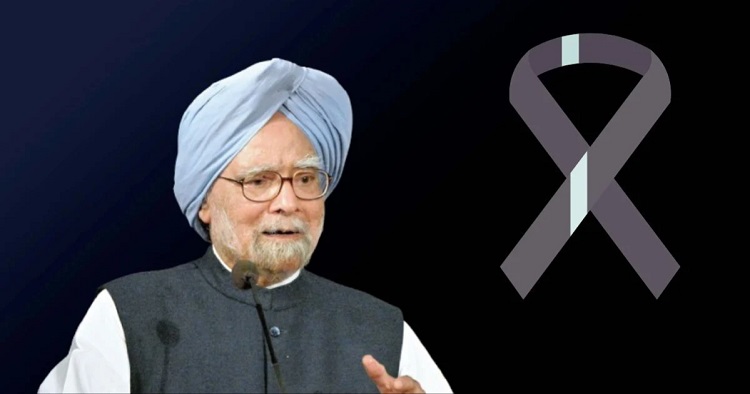India Declares Seven-Day Mourning in Honour of Former Prime Minister Manmohan Singh


India is in mourning following the passing of former Prime Minister Manmohan Singh, who died on Thursday evening in Delhi at the age of 92 after a prolonged illness.
Singh, known as the architect of India's economic liberalisation, leaves behind a legacy of transformative economic reforms and two terms as Prime Minister.
The Central Government has declared a seven-day national mourning period to honour his memory. All government programmes scheduled for Friday have been cancelled, while the Congress party has also postponed all events, including its Foundation Day celebrations, for the next seven days, as announced by General Secretary KC Venugopal.
State Funeral Arrangements
Singh's last rites will take place on Saturday at 11 am near Shakti Sthal in Delhi. As a former Prime Minister, he will receive the highest state honours, including a ceremonial 21-gun salute. His body will be draped in the national flag, and military bands and armed forces personnel will accompany his final journey with a traditional march.
A special protocol is being observed to pay tribute to his contribution to the nation, reflecting the respect he commanded across political lines.
Passing of a Visionary Leader
Singh was admitted to the All India Institute of Medical Sciences (AIIMS) after collapsing at home on December 26. An official bulletin from AIIMS stated:
"He was treated for age-related medical conditions and had sudden loss of consciousness at home. Resuscitative measures were initiated immediately and he was brought to the emergency department at AIIMS Delhi at 8.06 pm. Despite all efforts, he could not be revived and was declared dead at 9.51 pm."
Singh's death coincided with the Congress Working Committee meeting in Belagavi, Karnataka, prompting senior party leaders to rush to Delhi upon receiving the news.
Legacy of Economic Reforms
Manmohan Singh is celebrated as the architect of India’s landmark economic reforms in 1991 during his tenure as Finance Minister under then Prime Minister PV Narasimha Rao. His policies pulled India back from the brink of economic bankruptcy and laid the foundation for an era of liberalisation and growth, transforming the nation’s economic trajectory.
Serving as Prime Minister from 2004 to 2014, Singh steered India through a period of rapid development, gaining admiration for his calm demeanour and astute leadership.
His passing marks the end of an era for Indian politics and economics. Tributes have poured in from across the nation, reflecting the profound impact of his work on India’s history and its future.
Source: With inputs from Indian media
